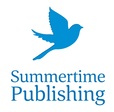|
As a publisher, teacher and editor my students and authors often ask me how they can write plausibly and effectively about their own lives. They fear being seen as narcissistic and want to know how they can be sure that what they write is useful to others and not boring nor self-indulgent. At the Ways With Words Daily Telegraph literary festival in Dartington, Devon, in early July, I was fortunate to attend a talk by Paul Heiney who has written a memoir called One Wild Song, about his recent experience in the wake of his 23-year-old son’s suicide. In 2006 Heiney’s son, Nicholas, took his own life. In 2011 Paul, a keen sailor, decided to voyage from Devon to Cape Horn and back, mostly alone. A journey of 18,000 miles, 11,000 of which were alone. It was shortly after Nicholas had passed away that Paul and his wife, Libby Purves, were sorting out their son’s bedroom. There, tucked away at backs of drawers and in odd places, they found scraps of paper containing snatches of prose, thoughts or poetry. Some of it seemed very good. Both felt that their son had would have wanted his writing to be seen by others yet recognised had not had the confidence while alive to share it. And it was while they were deep in their own grief that both had a very strong feeling that their son’s death should not be in vain. Nicholas had been studying English at Oxford and, aware, that as his parents, Paul and Libby were probably biased, they sought the second opinion of their son’s tutor. He agreed that Nicholas’ work was exceptiopnal and so, after forming their own publishing company, Silence at the Song’s End, was published. You can find out more at Songsend. “Some good must come of this,” they had said and it was for this reason that Paul decided to embark on his voyage of discovery. It seemed appropriate. Nicholas too had sailed. “He had understood it more profoundly in six years” than Paul had in more than 40 years of sailing himself. Nicholas had, at sea, discovered what he called, “the least lonely nowhere in the world.” Paul left Brixham in a sailing boat they named Wild Song after one of their son’s poems. “I did this to be alone and to be with,” he explained at the start of a talk that he promised would not be maudlin. “It is a celebration of how you have to get hold of grief and give it a damn good shake and make it work for you.” Many writers embarking on their memoirs struggle with several issues. They struggle with the imposter syndrome, the ‘who am I to presume others will want to read my story’. They struggle with their motives for writing it. Is it self-indulgent? Is it narcissistic? Does it matter? Does it have a purpose? Heiney believes that, “What does matter is not how we record our existence but that we do record it.” He hopes that “some ideas are planted in others’ minds that otherwise might not have come about.” And as we heard about the peace and acceptance Heiney discovered in the face of solitude, of time to reflect and times when he was vulnerable and in danger, we are moved to the edge of tears by his story, by scraps of Nicholas’ wonderful poetry, crammed with meaning and insight and by some wonderful description from the author himself as he found great beauty too. Heiney talked of the night he was alone in the Atlantic. The sea was flat as glass. There was no moon. He could not see the horizon and the stars that filled the black dome of sky were reflected in the ocean. He describes this as if he were “floating in a bowl of stars”. When surrounded by glaciers, in almost total silence he claimed, “the sound of a glacier cracking is the holiest sound there is.” To finish, he played a short video about his voyage. A photograph of Nicholas, waving from high up in the crow’s nest of a tall ship and a short clip of him leaning against the rail on deck, with the wind blowing his dark curls are juxtaposed with clips from Paul’s voyage as well as the voice of a young boy reading some of the most exquisite poetry I have ever heard. If you have a story that needs telling then please think of this: that it is better that you do record it, whichever method you may choose and that, if you move, inspire or plant ideas in your readers that, “some good must come of this.” One Wild Song is published by Bloomsbury and is available from both real and virtual bookshops.
|
�
All the latest news from the team at Summertime Publishing
As an Amazon Associate, we may earn a commission from qualifying purchases. This does not affect the price you pay or your consumer rights.
Archives
June 2024
|

